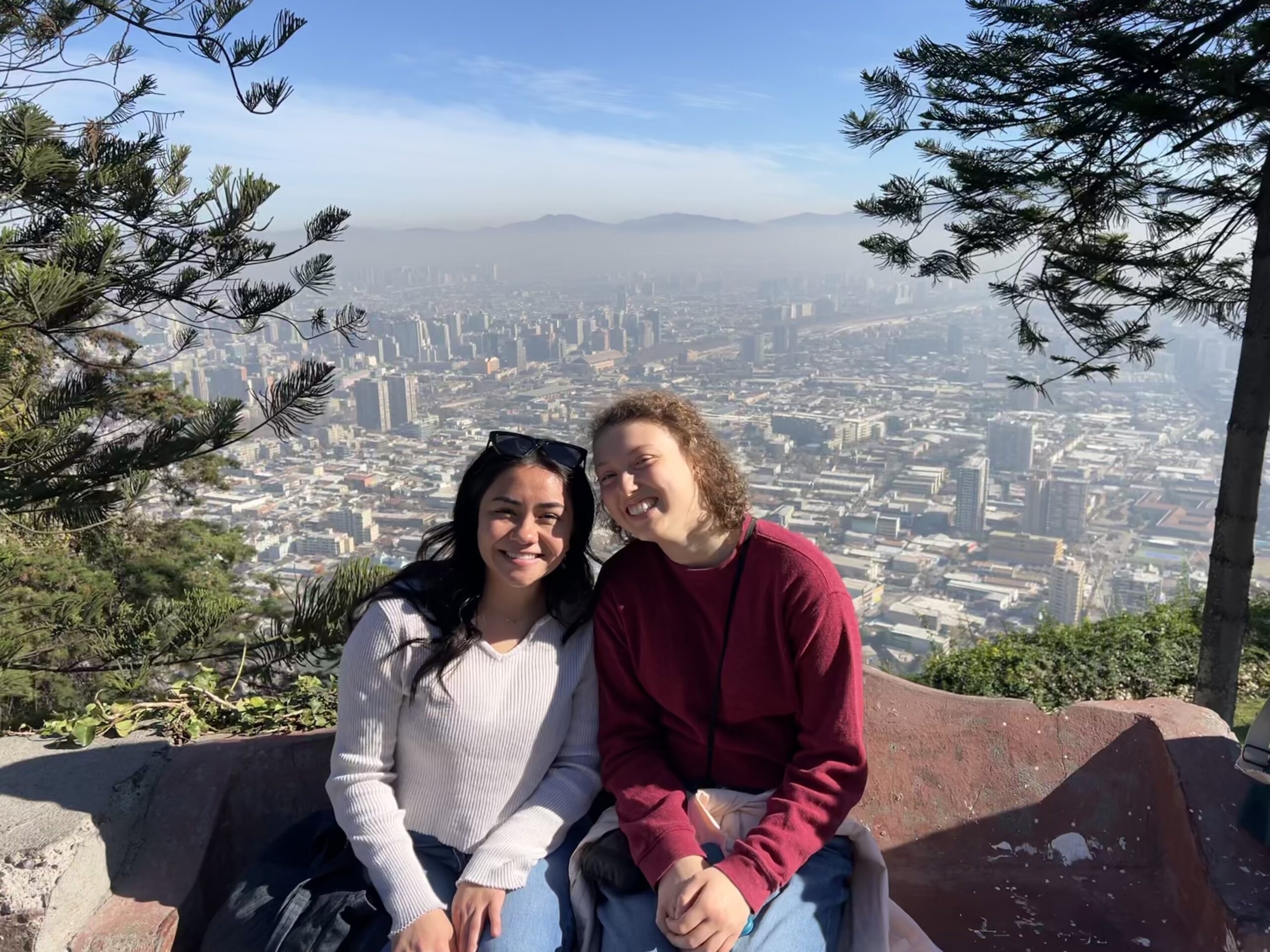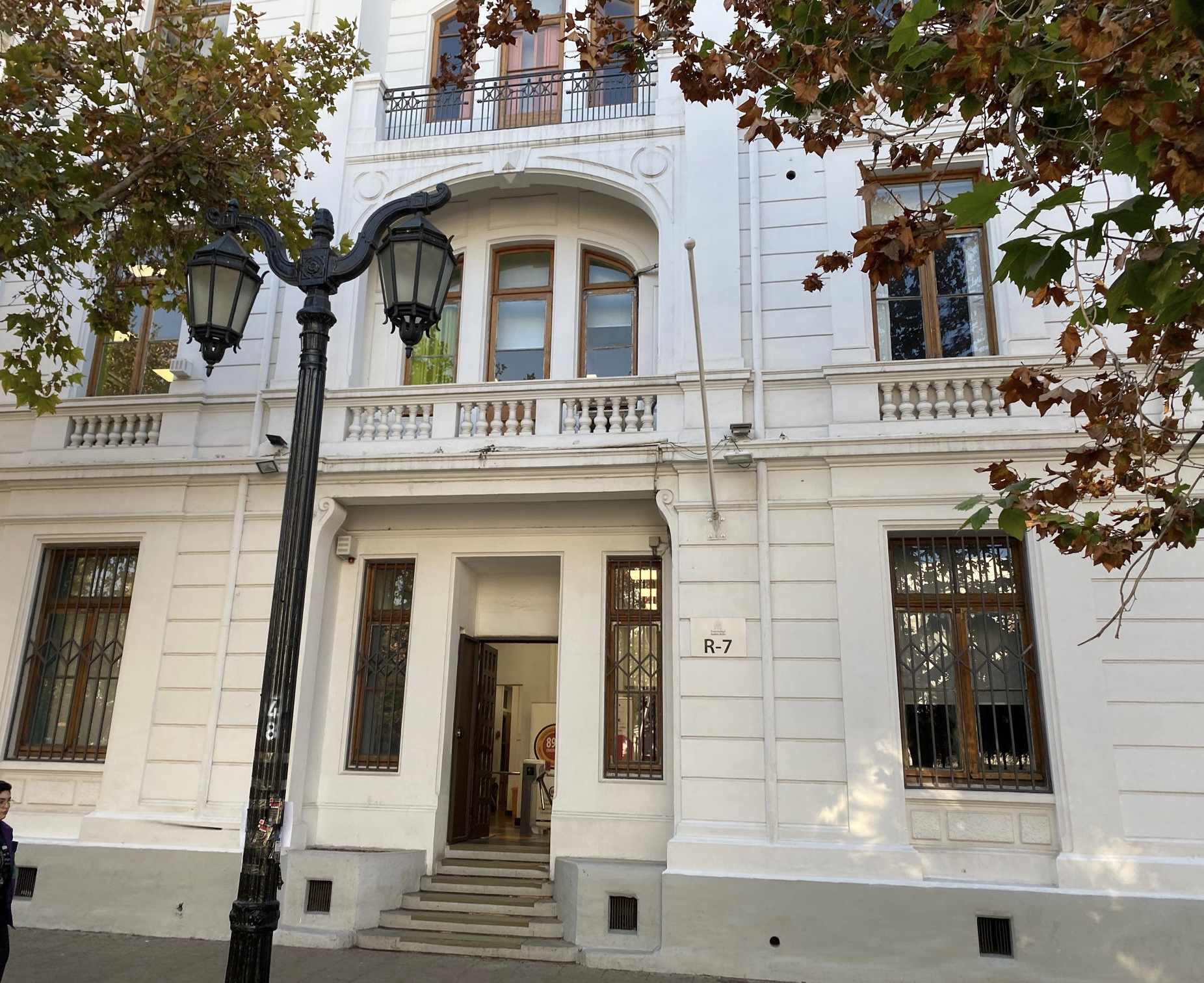
The Chilean Community
What does it mean to be a member of a community? The United States is rich in communities of people with diverse backgrounds. I am part of several different communities at the University of Idaho, in my hometown of Twin Falls, ID, and now I am part of a new community, here in Santiago, Chile. As a member of the Chilean community I’ve picked up new norms and traditions, from my host mom, Marjorie, my USAC advisors, other international students, and new friends. Living in this Chilean community I have learned how to travel through the city in new ways, including walking around the city, taking the bus, and the metro. Comparatively living in smaller cities in the United States, I’ve had the privilege of getting into my car and arriving at my destination quickly.
My journey to school in the morning was a time of reflection and observations. Every morning I observed people getting on the bus via the rear door to avoid paying bus fares. My curiosity took over and I decided to do more research on Chilean history and why this is happening. Understanding Chilean history is important to understand their culture and the community I am living in.
My research led me to my discovery about protests which occurred in October 2019 referred to as “La revolución estallido social.” This “social outburst” and protests occurred as a result of bus and metro fares increasing by 4% (30 pesos). The people of Chile were tired of continuous social injustice and inequality of the classes. Many people refer to these events as when “Chile despertó.” The frontline of this revolution was made up of minors and high school students. The people of Chile saw this rise in prices as unfair as their minimum wage is not fairly correlated with bus and metro fares. This led to people skipping fares more than ever in protest. However, the social protest has also caused fewer buses in transit and lower wages for bus drivers. This revolution has had lasting impacts on Santiago, Chile to this day.
Another part of the community that I took an interest in learning about is the street vendors I come across on my walk from the metro to class every morning. These street vendors always have a variety of things from scarves, backpacks, and freshly squeezed orange juice, to some of the best sopaipillas you could ever find. Street vendors have been around for several years in Chile and after the pandemic, the number of vendors has doubled. It is typically a niche line of work for undocumented immigrants that have come from a variety of Latin American countries like Colombia, Venezuela, Peru, etc. If caught by the Chilean police the vendors face fines and get all of their goods taken away. However, vendors are not often taken to jail unless they resist.
Why don’t these vendors “just” get permits to prevent facing these fines? It is very difficult to acquire a permit, especially food vendors when the city has to take into consideration several different factors. For most, street vending is the only source of income they receive, therefore the vendors must be open 7 days a week. A majority of the time vendors can earn more money in this line of work than in a legal job with low wages. As it is the only way they know. However, consequences of street vending include the effects on Chile’s economy and reduced food safety. Despite the positive and negative side of street vendors, they are a large part of the community here in Santiago, Chile.
Chile is a community full of diverse, hardworking, strong-minded individuals and I am grateful to feel welcomed while studying abroad. Being in a new city can be overwhelming, therefore it’s important to understand the world around you. I have spent the last few weeks taking the time to learn the stories behind the Chilean culture and its people so I can better understand my new community.
Image #1 caption: Cerro San Cristóbal
Image #2 caption: My host university: Universidad Andrés Bello

